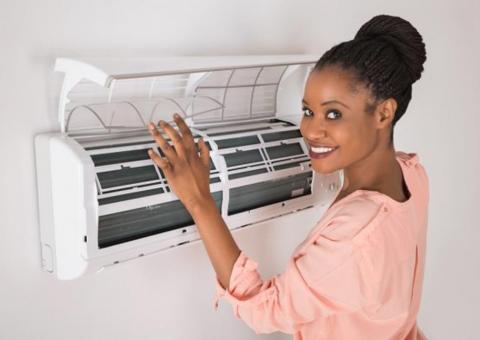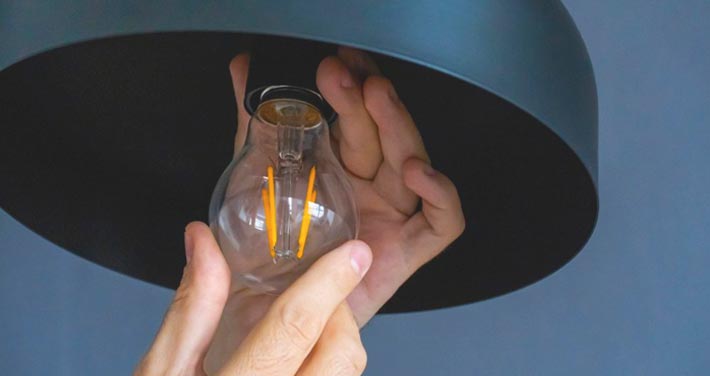Energy efficient improvements can yield long-term cost savings and increase the value of your home. You’ll be surprised at how simple it is to reduce your home's energy use by making small changes to your daily routines. Let’s consider heating and cooling.
According to the U.S. Energy Information Administration, more than half of energy usage in homes is for heating and cooling. It stands to reason, then, that regulating the thermostats in your home can have a major impact on your monthly energy bill. Three to five percent more energy is used for each degree your furnace thermostat is set above 68 degrees in winter, and the same applies to each degree the air conditioner is set below 78 degrees in summer. Read on for more ways to save.
- Smart and programmable thermostats can help you control heating and air conditioning more effectively. These units are easy to install and can automatically adjust the temperature according to the schedule you program. According to Energy Star®, smart thermostats can save up to 8% on an energy bill by using sensors and automation to adjust to your habits and the changing weather. Programmable thermostats are not responsive to weather or occupants, but can still generate savings. Massachusetts customers may be eligible for a rebate via Mass Save. New Hampshire natural gas customers may be eligible for a rebate via NHSaves.
- Clean or replace furnace and air conditioner filters regularly and perform preventative maintenance following the manufacturer's instructions. This will not only improve the efficiency of the unit, but will also prolong its lifespan.
- Air seal your home to avoid heat loss and gain, allowing your heat and cooling systems to work more efficiently. Common air sealing techniques include caulking cracks, adding weather-stripping to windows and doors, and adding insulation. Learn more about insulation and weatherization.
- If your outdated, inefficient room air conditioner needs replacement, look for an Energy Star-rated model. Massachusetts customers may be eligible for a rebate via Mass Save. New Hampshire customers may be eligible for a rebate via NHSaves. Explore tips on getting the most out of your room air conditioner.
- Close and lock windows when heating or cooling your home. Install shades, awnings or sun screens on windows facing south and/or west to block summer light. In winter, open shades on sunny days to help warm rooms.
- Ceiling or portable fans and open windows can cool down your home for less than a traditional air conditioner. Run ceiling fans in reverse (clockwise) to bring warm air down from the ceiling in the winter.
- If you have a fireplace, close the damper when it’s not in use. Try not to use the fireplace and central heating system at the same time. Glass fireplace doors can help as well.
- Kitchen hood fans and bathroom exhaust fans should be used when cooking or showering; they help remove excess moisture from your home.
- Put an insulating blanket around your water heater. Some newer models should not be wrapped, so be sure to check your owner’s manual first.
- If you have a dishwasher, set your water thermostat to 140 degrees or “normal.” Some units can use 120-degree water – check your user manual. If you don’t have a dishwasher, set your water heater thermostat to 120 degrees or "low."
- Install energy-saver showerheads. These showerheads can decrease water consumption by 40 percent or more, and you’ll save on the energy required to heat the water.
- Repair plumbing leaks promptly. A single dripping faucet can waste 212 gallons of water a month, while increasing the gas or electric bill for heating the wasted water.
Key Takeaways:
- According to Energy Star, a smart thermostat can save up to 8 percent on your energy bill, and because they're Wi-Fi enabled, they can be adjusted on the fly.
- Run ceiling fans in reverse (clockwise) to bring warm air down from the ceiling in the winter.
- Keep your furnace and air conditioning unit in tip-top shape by cleaning filters and performing preventative maintenance in accordance with the manufacturer's specifications.





